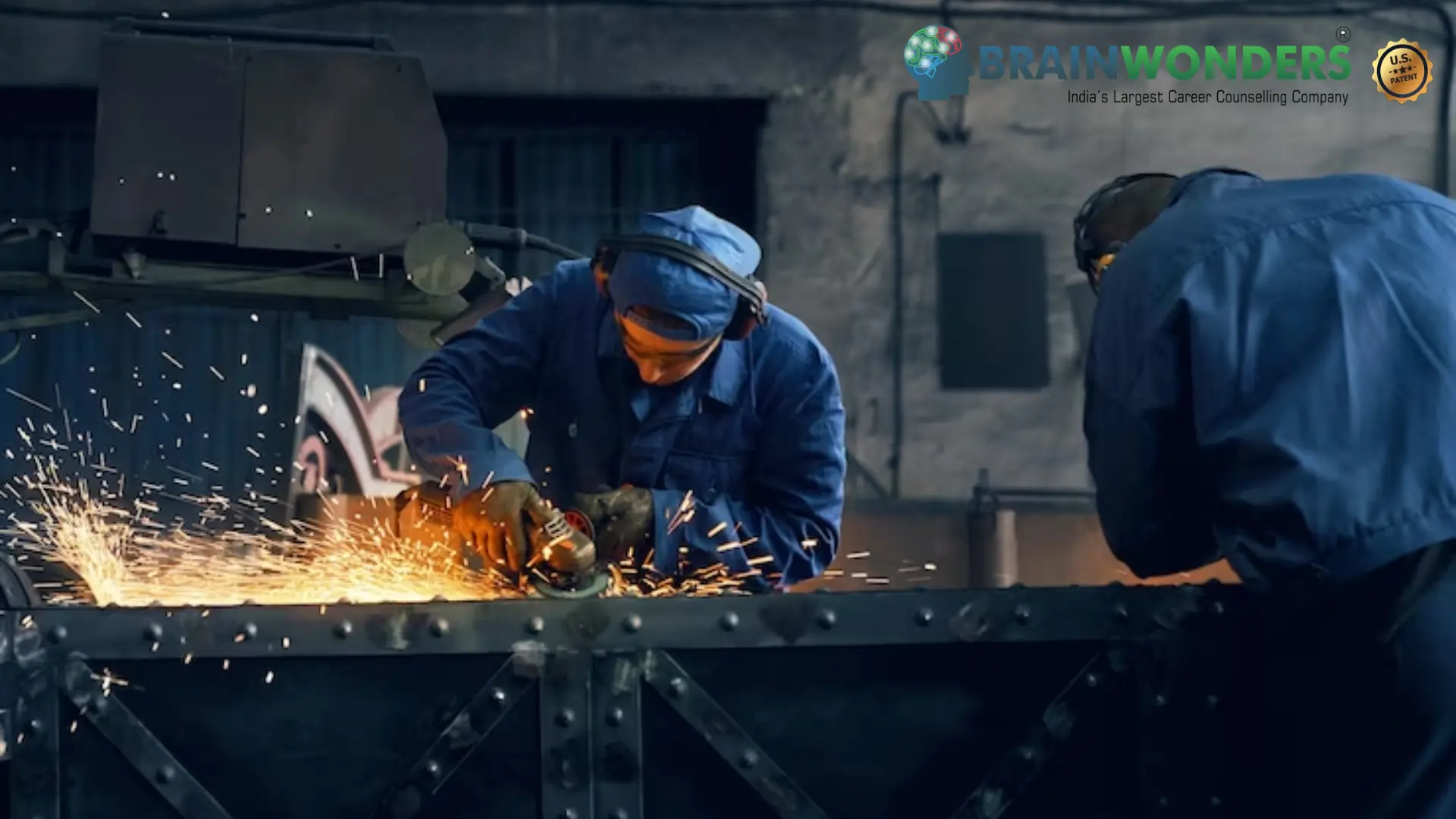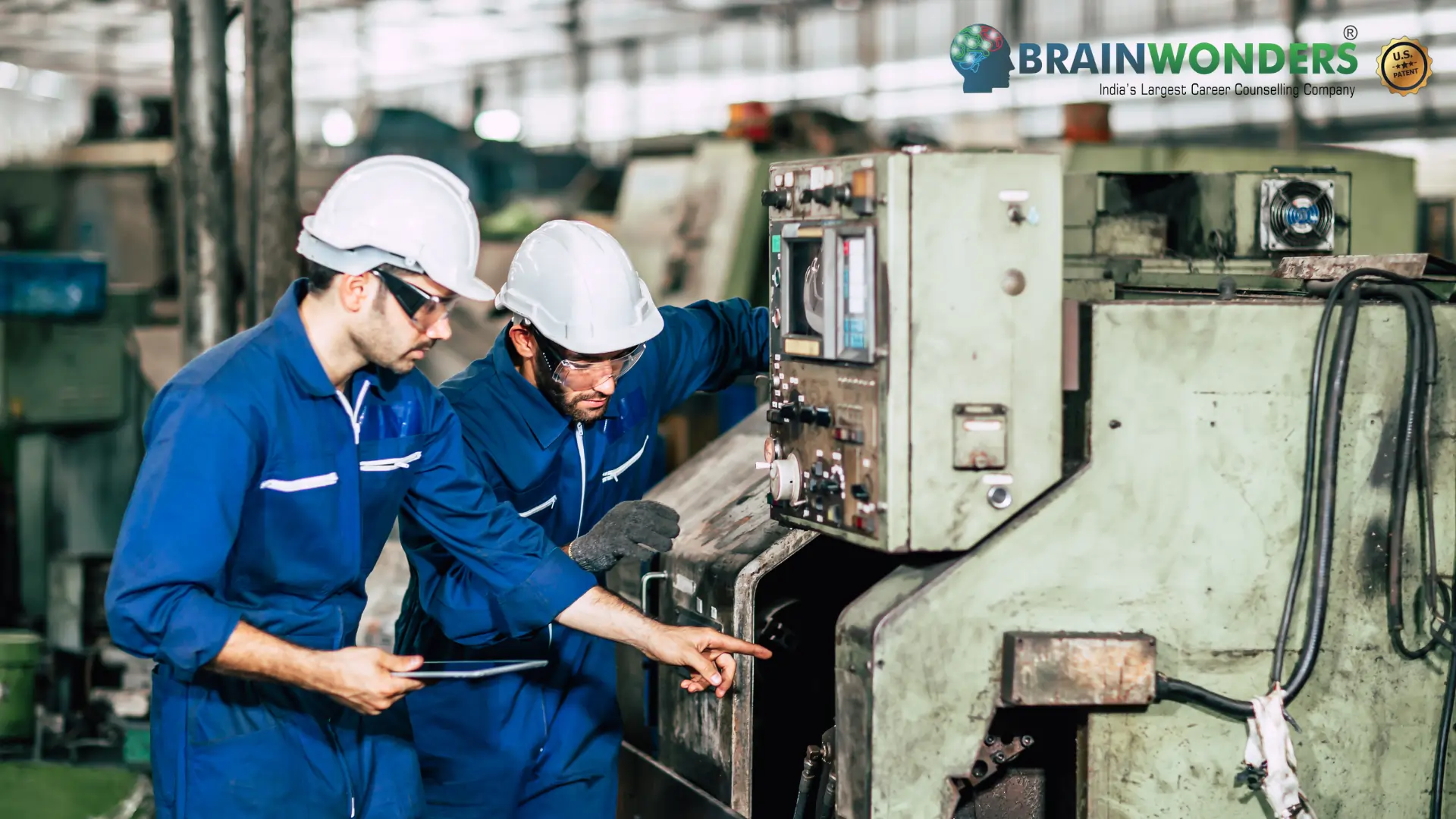How to become a Fitter
Overview, Courses, Exam, Colleges, Pathways, Salary

Overview
Who is Fitter ?
Fitters operate in the automotive, aerospace, manufacturing, and mining industries, where they fit, fabricate, and assemble the structural components that make up mechanical systems. They also do repairs and maintenance on machines as needed. Their job is to examine plans for mechanical systems to establish the specifications of the components that will be built. Using raw materials to create structural components. To join structural components, they employ welding equipment. They inspect manufactured parts to make sure they're the right size. they Replace damaged or defective structural components as needed.
Typical day at work
What does Fitter do?
- A fitter is a skilled tradesperson responsible for assembling, installing, and maintaining machinery, equipment, or structural components.
- They work across various industries, such as manufacturing, construction, engineering, and maintenance.
- Fitters interpret technical drawings, measure and cut materials, use hand and power tools, and ensure proper alignment and functioning of components.
- They may specialize in pipefitting, machinery installation, or HVAC systems.
- Fitters often work in teams and collaborate with engineers and technicians.
- Attention to detail, mechanical aptitude, problem-solving skills, and adherence to safety protocols are essential for success in this role.
Abilities and Aptitude needed
What are the skills, abilities & aptitude needed to become Fitter?
To be a good fitter, you must be meticulous, dedicated, and skilled at reading blueprints. Finally, a great fitter should be able to handle hand and power tools safely, as well as display superior analytical, problem-solving, and organising abilities. They must be familiar with mechanical parts, their functions, and the necessity of each, as well as be able to determine where each part should be installed.
Pathways
How to become an Fitter?
Entrance Exam
Entrance Exam for Fitter ?
Courses
Which course I can pursue?
Best Colleges
Which are the best colleges to attend to become an Fitter?
Industries
Which Industries are open for Fitter?
- Fitters have employment opportunities in diverse industries.
- They can work in manufacturing plants, including automotive, aerospace, electronics, and consumer goods industries.
- Construction companies hire fitters for structural assembly and installation in residential, commercial, and industrial projects.
- Fitters are also employed in the energy sector, including oil and gas refineries, power plants, and renewable energy projects.
- Additionally, fitters find employment in shipbuilding, mining, HVAC (Heating, Ventilation, and Air Conditioning) installation and maintenance, and the maintenance departments of various organizations. The broad range of industries ensures many opportunities for skilled fitters.
internship
Are there internships available for Fitter?
While internships specifically tailored for fitters may not be as common as in some other fields, there are opportunities for aspiring fitters to gain practical experience. Some manufacturing companies, construction firms, and maintenance departments may offer internships or apprenticeships for individuals interested in pursuing a career as a fitter. These programs provide hands-on training, exposure to real-world projects, and mentorship from experienced fitters. Internships can be a valuable way to develop skills, learn industry-specific techniques, and make connections in the field. It is worth researching and contacting companies in relevant industries to inquire about internship opportunities for aspiring fitters.
Career outlook
What does the future look like for Fitter?
Fitters typically operate in a factory or industrial facility, which necessitates the usage of safety equipment such as masks, goggles, and earplugs. Fitters can work in a variety of industries, including automobiles, aeroplanes, manufacturing, and mining. They usually work on large scale projects of manufacturing machines, tools, infrastuructures under other engineers.



